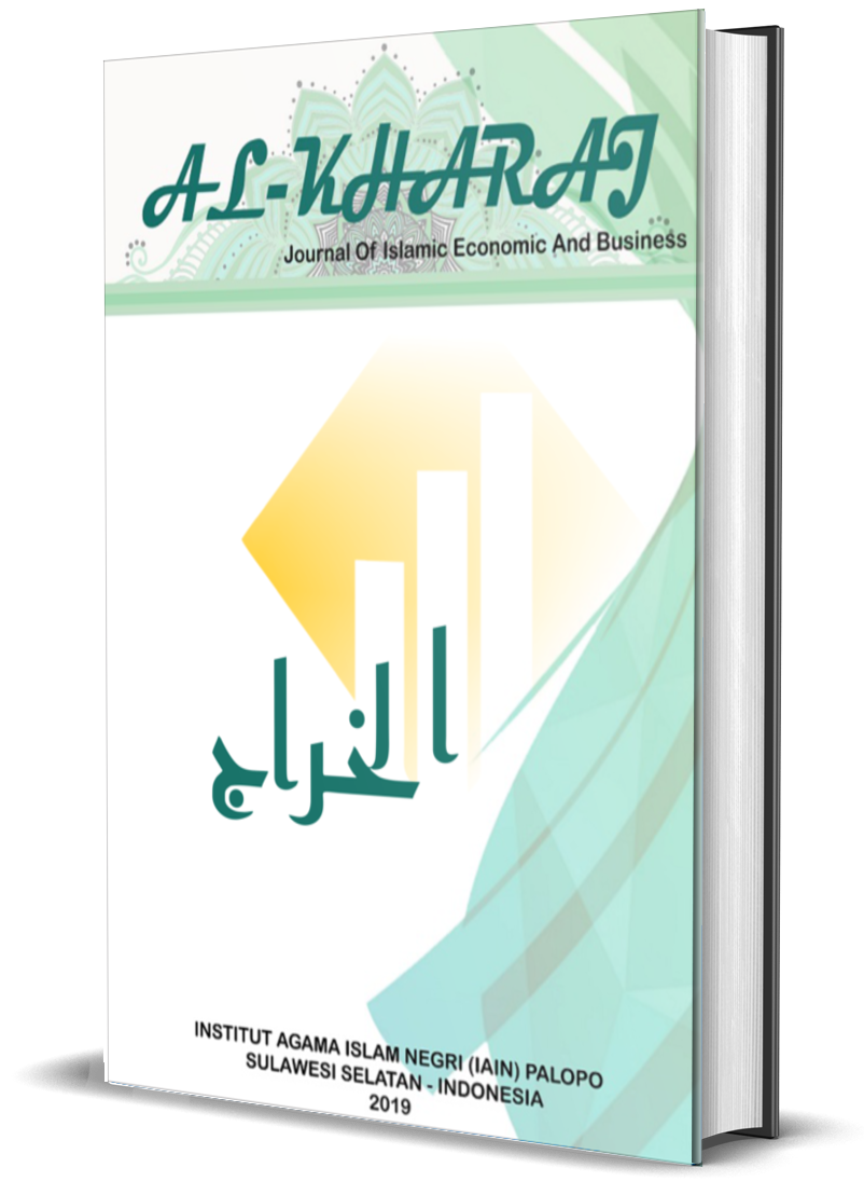The Influence of Service Quality Dimensions on Public Satisfaction at the Balusu Sub-district Office, Barru Regency
DOI:
https://doi.org/10.24256/kharaj.v7i3.7741Keywords:
Dimensions of Service Quality, Public Satisfaction.Abstract
The purpose of this study is to determine the Influence of Service Quality Dimensions on Public Satisfaction at the Balusu District Office, Barru Regency. The analytical methods used in this study are simple linear regression analysis, T test, correlation analysis and determination. The results of the study indicate that the hypothesis of service quality dimensions on public satisfaction is accepted on the basis of the calculated T value of 5.549 which is greater than the T table value of 1.7108 then the results of the correlation coefficient test show that the service quality dimensions on public satisfaction have a strong relationship, then based on the results of the determination test shows that the contribution of service quality dimensions is 54.4% to the public satisfaction variable.
References
Kotler, Armstrong. 2015. Marketing an Introducing Prentice Hall twelfth edition. England: Pearson Education.
Moenir. 2015. Public Service Management in Indonesia. Jakarta: PT Bumi Aksara
Sinambela, Lijan Poltak. 2010. Public Service Reform, Policy Theory and Implementation. Fifth Edition. Jakarta: PT Bumi Aksara.
Tjiptono, Fandy. 2014. Service, Quality & Satisfaction. Yogyakarta: Andi
Pardamean, Poltak, et al. 2020. The Quality of Sub-district Office Services on Community Satisfaction in Dolok Batu Nanggar in Simalungun Regency. Jurnal EK&BI, Volume 3, Number 1 June 2020. DOI 10.37600/ekbi.v3i1.119.
Law Number 25 of 2009 concerning Public Services
Law Number 23 of 2014 concerning Regional Government.
Minister of State Apparatus Empowerment of the Republic of Indonesia. Decree of the Minister of State Apparatus Empowerment Number: 63/KEP/M.PAN/7/2003. Concerning General Guidelines for the Implementation of Public Services.
Mujahidin, Rahmadani, N., & Putri, Q. A. R. (2024). Analysis of the Influence of Religiosity Values In Reducing Consumptive Behavior in Indonesian Muslim Consumers. Amwaluna: Jurnal Ekonomi dan Keuangan Syariah, 8(2), 253-274.
Wulandari, S., Irfan, A., Zakaria, N. B., & Mujahidin. (2024). Survey Study on Fraud Prevention Disclosure Measurement at State Islamic Universities in Indonesia. IQTISHODUNA: Jurnal Ekonomi Islam, 13(1), 327–348. https://doi.org/10.54471/iqtishoduna.v13i1.2305
Sapsuha, M. U., Alwi, Z., Sakka, A. R., & Al-Ayyubi, M. S. (2024). Review of Gold Trading Practices on Credit (non-Cash) Based on Hadith. Al-Kharaj: Journal of Islamic Economic and Business, 6(3).
Majid, N. H. A., Omar, A. M., & Busry, L. H., Mujahidin Reviving Waqf In Higher Education Institutions: A Comparative Review Of Selected Countries. European Proceedings of Social and Behavioural Sciences.
Ishak, I., Putri, Q. A. R., & Sarijuddin, P. (2024). Halal Product Assurance at Traditional Markets in Luwu Raya Based on Halal Supply Chain Traceability. Amwaluna: Jurnal Ekonomi dan Keuangan Syariah, 8(2), 224-240.
K, A. ., Astuti, A. R. T. ., & ., Mujahidin. (2024). The Impact of Word of Mouth and Customer Satisfaction on Purchase Decisions: The Role of Maslahah as an Intervening Variable in the Cosmetic Products Industry in Indonesia. Journal of Ecohumanism, 3(7), 1525–1540. https://doi.org/10.62754/joe.v3i7.4307
Arno, A., & Mujahidin, M. (2024). Enhancing Zakat Management: The Role of Monitoring and Evaluation in the Amil Zakat Agency. Jurnal Economia, 20(3), 397-418. doi:https://doi.org/10.21831/economia.v20i3.53521
Amiruddin, R., Abdullah, M. R., & Noor Bakri, A. (2025). The Influence of e-WOM, Fashion Trends, and Income on the Consumption Style of the Muslim Community in Palopo City: A Quantitative Analysis. El-Qist: Journal of Islamic Economics and Business (JIEB), 14(2), 185–205. https://doi.org/10.15642/elqist.2024.14.2.185-204
Meilany, R., Fasiha, F., & Moalla, M. (2025). The Role of Interest as a Mediator in The Relationship of Knowledge and Islamic Financial Inclusion to The Loyalty Costumers of Non-Muslim. IKONOMIKA, 10(1), 1-24.
Fiqran, M., Mujahidin, M., Bakri, A. N., & Abdulrahman, A. J. A. (2024). Motivation for Waqf in Millennials and Generation Z: Highlighting Religiosity, Literacy and Accessibility. IKONOMIKA, 9(2), 309-332.
Putri, Q. A. R., Fasiha, F., & Rasbi, M. (2024). Affiliate marketing and intention to adopt mudarabah: The mediating role of trust in Islamic financial decision-making. JEMA: Jurnal Ilmiah Bidang Akuntansi Dan Manajemen, 21(2), 337–362. https://doi.org/10.31106/jema.v21i2.23381
Downloads
Published
How to Cite
Issue
Section
Citation Check
License
Copyright (c) 2025 Warni, Syahrir, Musralin

This work is licensed under a Creative Commons Attribution-ShareAlike 4.0 International License.
Authors retain copyright and grant the journal right of first publication with the work simultaneously licensed under a Creative Commons Attribution-ShareAlike 4.0 International License. In line with the license, authors are allowed to share and adapt the material. In addition, the material must be given appropriate credit, provided with a link to the license, and indicated if changes were made. If authors remix, transform or build upon the material, authors must distribute their contributions under the same license as the original.









